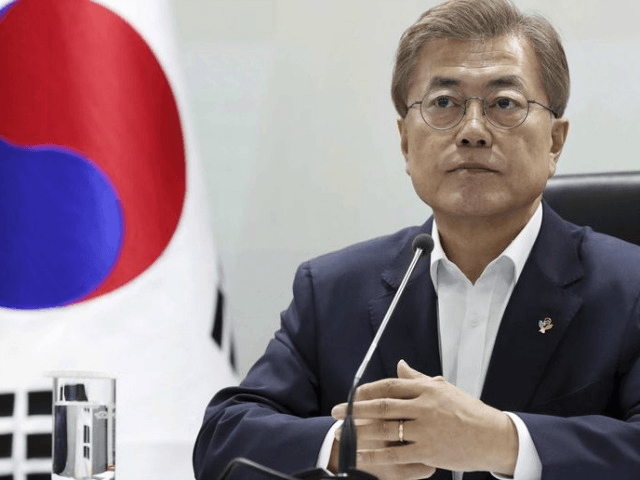South Korea’s government unveiled a formal diplomatic overture to North Korea on Monday, the first of President Moon Jae-in’s term and potentially the first serious discussions between the two Korean governments since 2015. If North Korea accepts, the talks will be held on July 21st in the village of Pammunjom.
“Talks and cooperation between the two Koreas to ease tension and bring about peace on the Korean peninsula will be instrumental for pushing forth a mutual, virtuous cycle for inter-Korea relations and North Korea’s nuclear problem,” said South Korean Unification Minister Cho Myoung-gyon, as quoted by Reuters.
“We hope that North and South Korea can work hard to go in a positive direction and create conditions to break the deadlock and resume dialogue and consultation,” said a spokesman for the Chinese Foreign Ministry, expressing Beijing’s approval of the South Korean offer.
According to Cho, proposals made to North Korea will include restoring communication hotlines, cut by North Korea last year after its most recent nuclear test triggered economic sanctions, and restarting a Red Cross humanitarian project to reunite families separated by the Korean War. If all goes according to plan, the Red Cross talks would occur on August 1st, and family reunions could occur during the Chuseok holiday season in October.
One possible sticking point is South Korea’s idea that the talks would put an end to “hostile military activities,” a term North and South Korea define very differently. North Korea routinely denounces all joint U.S.-South Korean military drills as hostile actions. Cho suggested that the South Korean government has not yet discussed the idea of suspending such drills to placate the North.
The easiest concession for both sides to make would be agreeing to suspend their mutual habit of blasting propaganda messages at each other with loudspeakers, so if the proposed meeting occurs, that would probably be one of the first “breakthroughs” announced.
Reuters also notes that North Korea has demanded the return of twelve waitresses who defected to South Korea last year as a precondition for talks. As the BBC points out, Pyongyang is extremely angry about the South’s refusal to return defectors.
South Korea’s Yonhap news service sees the talks as “a litmus test of whether the Kim Jong-un regime is interested in changing the course of belligerence,” and says President Moon was “emboldened” to make the offer by U.S. President Donald Trump’s support. Yonhap suggests the offer might have been made sooner if North Korea did not insist on proceeding with provocative missile tests.
Yonhap quotes Unification Minister Cho, assuring North Korea that Moon’s administration will “never pursue the collapse of North Korea and an absorption-based reunification.” North Korea sometimes rebuffs South Korean diplomatic advances by treating “reunification” as a South Korean scheme to topple the Kim regime and effectively reintegrate the Korean peninsula by conquest.
Although some observers expressed optimism that North Korea would accept the offer, Yonhap postulates that North Korea will sabotage negotiations by unreasonably demanding an end to South Korean drills with the United States while refusing to budge on its own nuclear and ICBM programs. Also, there are concerns that Seoul will be seen as undermining international sanctions against North Korea if it gives too much away at the talks.
The UK Guardian reports that the European Union expressed support for South Korea’s efforts to negotiate, but also denounced North Korea’s recent ICBM test as a “serious threat to international peace and security” and said it may proceed with tougher sanctions against Pyongyang.

COMMENTS
Please let us know if you're having issues with commenting.